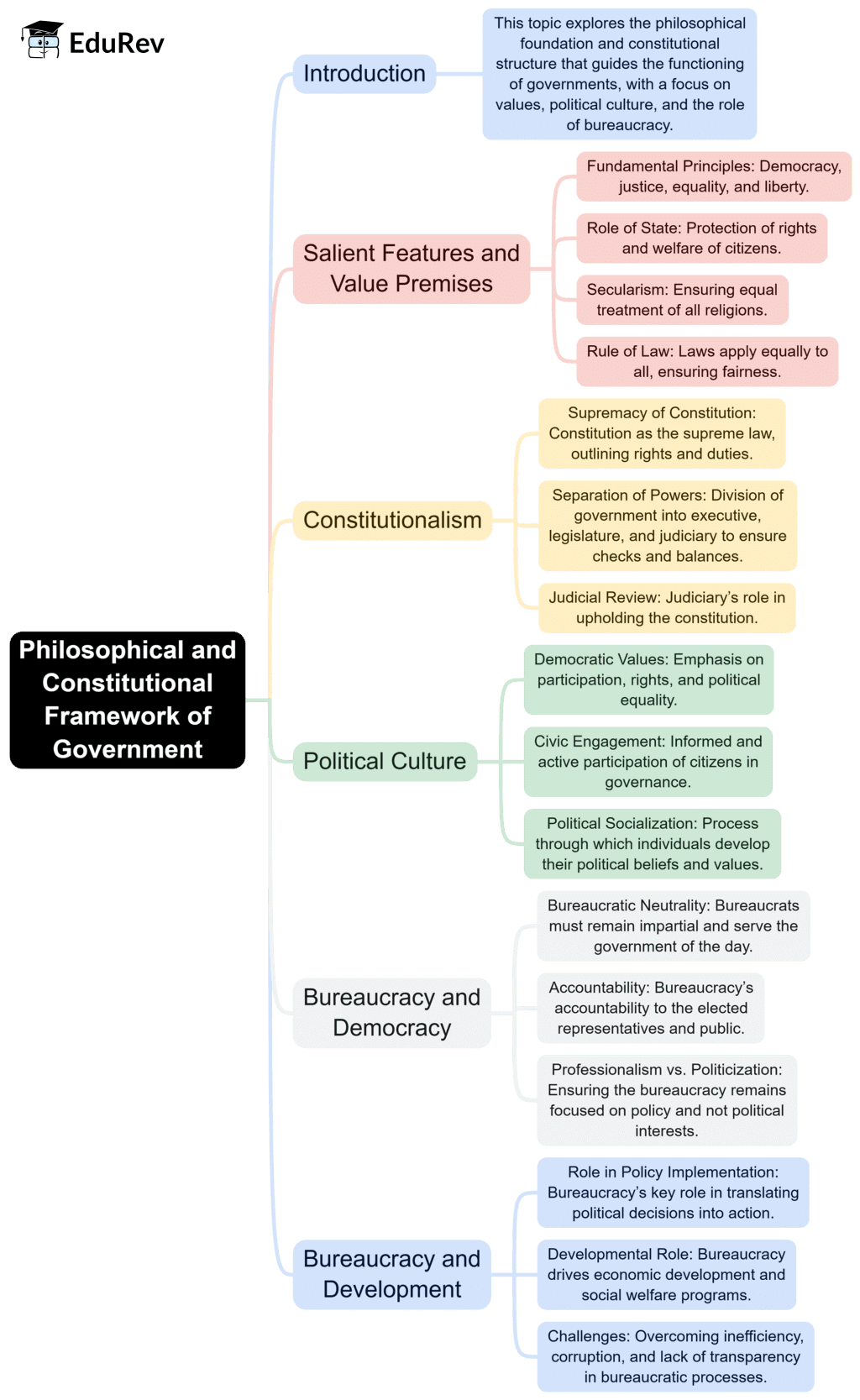CLAT Exam > CLAT Notes > Current Affairs & General Knowledge > Mind Map: Philosophical and Constitutional Framework of Government
Mind Map: Philosophical and Constitutional Framework of Government | Current Affairs & General Knowledge - CLAT PDF Download

The document Mind Map: Philosophical and Constitutional Framework of Government | Current Affairs & General Knowledge - CLAT is a part of the CLAT Course Current Affairs & General Knowledge.
All you need of CLAT at this link: CLAT
|
122 videos|976 docs|37 tests
|
FAQs on Mind Map: Philosophical and Constitutional Framework of Government - Current Affairs & General Knowledge - CLAT
| 1. What is the significance of the philosophical framework in the context of government? |  |
Ans. The philosophical framework of government is significant as it provides the foundational principles and values that guide the formation and functioning of a political system. It encompasses ideas about justice, rights, liberty, and the role of the state, influencing how laws are created and enforced, and how citizens interact with their government.
| 2. How does the constitutional framework shape the governance of a country? |  |
Ans. The constitutional framework establishes the structure, powers, and limitations of government institutions. It defines the relationship between the state and individuals, ensuring the protection of fundamental rights and the rule of law. A robust constitution also facilitates checks and balances, preventing the abuse of power and promoting democratic governance.
| 3. What are the key features of the Indian Constitution that reflect its philosophical foundation? |  |
Ans. The Indian Constitution incorporates several key features reflecting its philosophical foundation, such as fundamental rights, the directive principles of state policy, secularism, and social justice. These elements embody the ideals of equality, liberty, and fraternity, ensuring that the government operates in a manner that upholds the dignity and rights of all citizens.
| 4. How do philosophical ideas influence constitutional interpretation and judicial decisions? |  |
Ans. Philosophical ideas influence constitutional interpretation by providing a framework for understanding the intent and purpose behind constitutional provisions. Judges often refer to philosophical principles when making decisions, allowing them to interpret laws in a manner that aligns with broader notions of justice, equity, and the common good, thereby shaping the evolution of constitutional jurisprudence.
| 5. Why is it important for UPSC aspirants to understand the philosophical and constitutional framework of government? |  |
Ans. For UPSC aspirants, understanding the philosophical and constitutional framework of government is crucial as it forms the basis for many questions in the civil services examination. A solid grasp of these concepts helps candidates analyze current events, engage in critical thinking, and provide informed perspectives on governance, policy-making, and public administration, enhancing their overall performance in the exam.
Related Searches





















